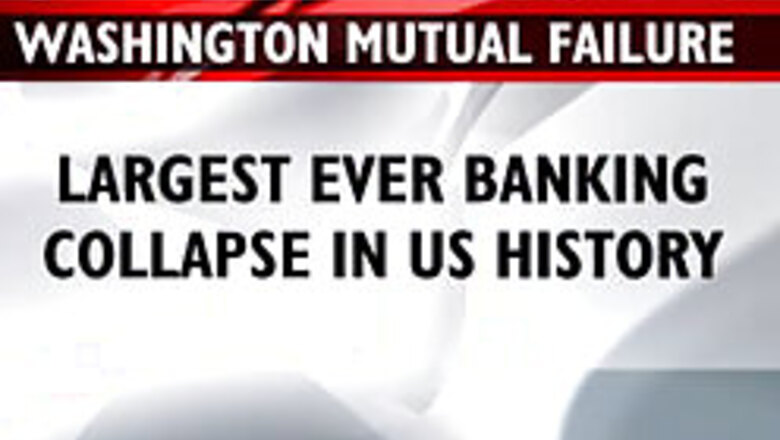
views
New York: The $700 billion bailout proposal by the in US government is stuck in political muddle as both Republicans and Democrats fight it out on who should benefit from the treasury's largesse.
US President George W Bush has already said that the bailout should not be seen as helping individual companies.
"This rescue effort is not aimed at preserving any individual or company but it is aimed preserving America's over all economy," Bush had said.
Treasury Secretary Henry Paulson, Democrat Presidential candidate Barack Obama and Republican Presidential candidate John McCain, too, have acknowledged that America is facing a massive crisis in its financial system.
While Wall Street burns, they were the proverbial Neros to whom Americans were looking upon to save the American financial system.
But after six days of intensive talks, the $700 billion bailout debate is still caught in politics.
McCain, in Washington after cutting short his election campaign, proposed a revised package. He wants to spare tax payers and fund Wall Street's recovery by injecting private capital.
Senator Harry Reid, Senate Majority Leader, however, says, "John McCain did nothing to help. He only hurt the process. We are convinced that there is a crisis out there that needs to be addressed. The sooner we're able to do that, the better off we are."
Democrats backing the deal want to make $250 billion available immediately, the remainder after approval from Congress.
They also want a cap on executive salaries. But McCain is sticking to his stance. They say, easing tax laws would prompt investors to put in their own dollars.
"It is a plan again that does not require $700 billion of taxpayer dollars to go in and bail out Wall Street. It is a plan that allows for the taxpayers who did nothing wrong to be able to continue to look to their retirements, to look to their college savings plan without having to pay this tremendous price to effect this recovery," Republican Eric Cantor of Virginia says
The delay on Capitol Hill has taken another victim. Washington Mutual, America's largest savings and loan company shut down, selling assets to JPMorgan Chase.
Washington Mutual (WaMu) was America's largest savings and loan institution and JPMorgan Chase, the third- largest bank in the US has bought out WaMu.
It has agreed to acquire certain assets of WaMu for $1.9 billion. However, the buyout has no impact on WaMu's depositors or customers.
WaMu was under immense pressure to sell when ratings agency Standard & Poor's slashed the bank's ratings to "junk" territory.
WaMu's customers may be safe, but employees at the bank are worried about their jobs.
"Of course we are going to have some uncertainties and some questioning about what's going on. Have I been nervous? Sure. That's the nature of the whole beast. When a large company gets bought out you wonder about your job. Are heads gonna roll? You just don't know but we have faith in our bosses and the people upstairs," John Graybill, a Washington Mutual employee, says.




















Comments
0 comment